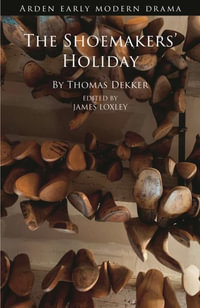Cold War Friendships explores the plight of the Asian ally of the American wars in Korea and Vietnam. Enlisted into proxy warfare, this figure is not a friend but a "friendly," a wartime convenience enlisted to serve a superpower. It is through this deeply unequal relation, however, that the Cold War friendly secures her own integrity and insists upon her place in the neocolonial imperium. This study reads a set of highly enterprising wartime subjects who make their way to the US via difficult attachments.
American forces ventured into newly postcolonial Korea and Vietnam, both plunged into civil wars, to draw the dividing line of the Cold War. The strange success of containment and militarization in Korea unraveled in Vietnam, but the friendly marks the significant continuity between these hot wars. In both cases, the friendly justified the fight: she was also a political necessity who redeployed cold war alliances, and, remarkably, made her way to America.
As subjects in process--and indeed, proto-Americans--these figures are prime literary subjects, whose processes of becoming are on full display in Asian American novels and testimonies of these wars. Literary writings on both of these conflicts are presently burgeoning, and Cold War Friendships performs close analyses of key texts whose stylistic constraints and contradictions--shot through with political and historical nuance--present complex gestures of alliance.
Industry Reviews
"Revising the supposed otherness and passivity of Cold War friendlies, Park perceptively illuminates that self-positioning proto-American subjects negotiate the sometimes conflicting imperatives of both Cold War alliances and Asian American assimilation. Tracing the wartime genealogy of Asian Americanization, Cold War Friendships speaks not just to Asian American and Cold War Studies but also to transpacific studies [...] If we see Cold War
Friendships as a response to the transnational turn in Asian American studies, Park deftly reveals how this transnational turn must also include a recognition of historically invisible proto-American friendlies and their
difficult but sincere attachments to the United States." -- Yi-Ting Chang, Pennsylvania State University, in Journal of Asian American Studies
"Scholarship on literature produced by Korean American and Vietnamese American authors has been notoriously hard to come by until quite recently. Examining the social, (geo)political, and literary dimensions of a complex topic, Park (Univ. of Pennsylvania) has produced a study that provides an invaluable, potentially foundational, three-pronged genealogy of Asian American identity during the Cold War. In her introduction, "Making Friendlies," Park frames the
book's central argument: Asian American identity during the Cold War was overdetermined by the wartime concept of a "friendly" -rather than a "friend"-epitomized by the Korean character of Ho-Jon in
Richard Hooker's 1968 novel MASH (and the subsequent film and television series)." --D. C. Maus, CHOICE
"Josephine Park compellingly elucidates the instrumentality of the Asian 'friendly'--at once an ally and an object of Orientalist contempt---to securing the morality of U.S. modernity in and after the Cold War era. The deep imbrication of Asian American subjectivity and U.S. geopolitical hegemony that Park traces reminds us of the centrality of Asiatic racialization to the formation of the U.S. nation." -- KANDICE CHUH, author of Imagine Otherwise: On
Asian Americanist Critique
"In Cold War Friendships, Josephine Park perceptively turns to literature in order to demonstrate how the political divisions, enmities, and alliances forged during the so-called Cold War have thoroughly imbued Asian American formation. Park illuminates both the very real costs of the 'proxy' wars in Korea and Vietnam, as well as the conditions of possibility that these wars entailed for Asian American national and social belonging." -- CRYSTAL PARIKH,
author of An Ethics of Betrayal: The Politics of Otherness in Emergent U.S. Literature and Culture
"Tracking the depiction of 'friendlies' in literary treatments of the Korean and Vietnam Wars, Park deftly explores how the aesthetics of those processes ultimately found-and continues to find-expression in the literary production of Asian America. Cold War Friendships shows the unique revelatory power of both literary works and literary criticism as it traces 'an Asian American genealogy of war' and the Cold War legacy it makes manifest."-- PRISCILLA
WALD, author of Contagious: Cultures, Carriers, and the Outbreak Narrative
























